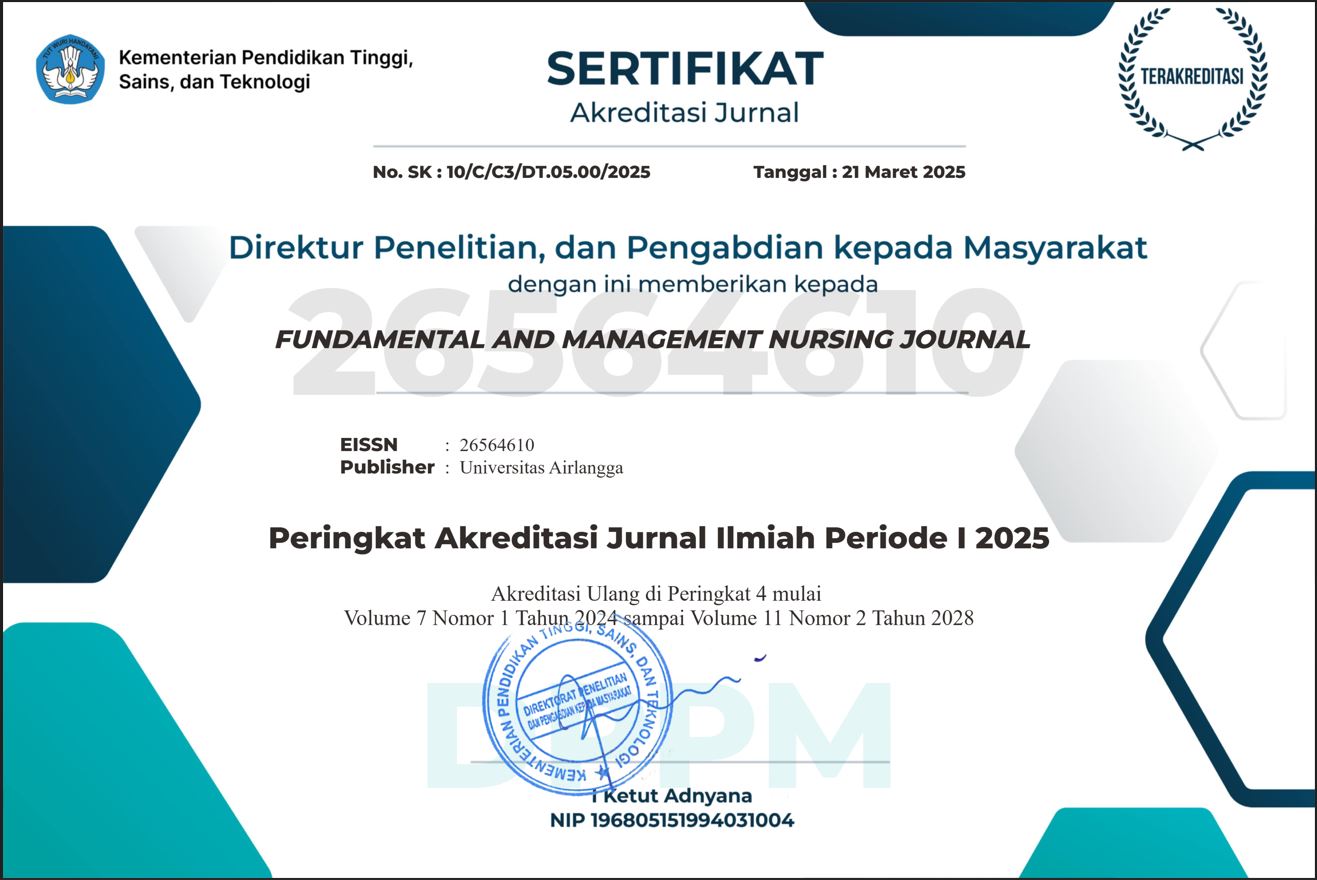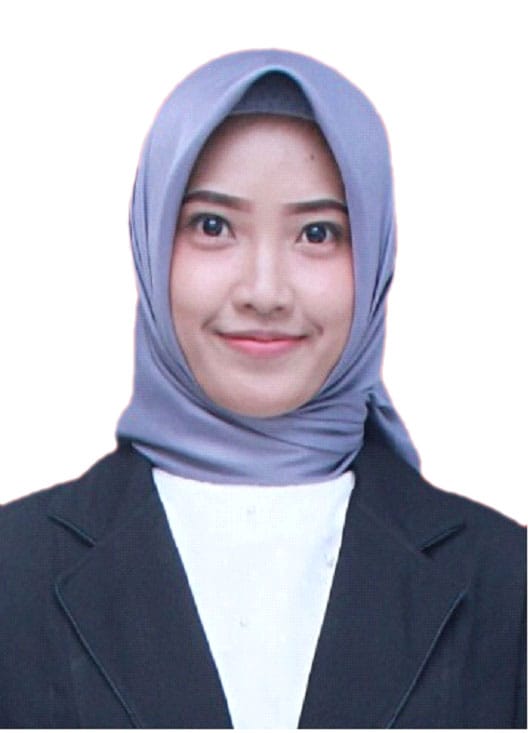Analysis Knowledge of Spiritual Care and HbA1c Among Individual Living with Diabetes Mellitus
Introduction: Diabetes mellitus (DM) is a metabolic disease represented by hypoglycemia due to abnormalities in insulin secretion, insulin action, or both. Normal blood glucose levels influence the healing process for DM complications. Reducing blood glucose levels can be achieved by releasing the hormone endorphin, secreted when the patient is calm and comfortable. One way to achieve self-calm is by getting spiritual care. Spiritual care is a process of healing by fulfilling spiritual needs. The objective assessment of DM is seen in hematological parameters, one of them is Glycate Haemoglobin (HbA1c). This study to identifying the analysis between the knowledge of spiritual care and HbA1c assessment.
Methods: This was a quantitative research correlation analysis design using person correlation. The dependent variable is the patient's knowledge of spiritual care, while the independent variable is HbA1C levels. The sample is 32 from 115 DM patients with new cases in RSUD Cibinong, Bogor 2022. questionnaire used to collect the knowledge of spiritual care and HbA1c assessment was taken at the same time.
Results: The results showed that the majority were female (68.8%), aged 56-65 years (46.9%), knowledge level high category (56.3%), and HbA1c levels were normal (81.3%.) Bivariate analysis has significant results in identifying the relationship between the knowledge of spiritual care and HbA1c levels in DM patients (p-value 0.02).
Conclusions: This study concludes that spirituality care can influence HbA1c assessment to a normal level. Spirituality care could be non-pharmacological therapy for DM patients.
1. INTRODUCTION
Globally, Diabetes mellitus (DM) is known as a chronic disease that occurs in developed and developing countries. Data was obtained that 366 million people had DM in 2011, which is predicted to increase to 552 million in 2030(Association, 2019). The incidence of DM in Indonesia was ranked 7th among ten countries with the highest number of sufferers, around 10.7 million. Indonesia is the only country in Southeast Asia with the most DM patients(Kemenkes, 2020). WHO data states that DM sufferers in 2018 were 10.7 million people. Indonesia is ranked 3rd in Southeast Asia at 11.3%(Federation, 2019). By the year, the disease has continued to experience a significant increase in numbers.
It has been widely studied that DM is associated with numerous complications, leading many patients to seek treatment in healthcare facilities. These complications are typically classified as microvascular, including retinopathy, nephropathy, and neuropathy, and macrovascular, such as cardiovascular disease and atherosclerosis. Anugrah et al. (2022) found that among DM patients, neuropathy (45.6%) was the most common complication, followed by nephropathy (32.1%) and cardiovascular disorders (28.7%)(Anugrah et al., 2022).
Effective management of DM relies on maintaining stable blood glucose levels. Glycated hemoglobin (HbA1c) is a key indicator of long-term glycemic control, reflecting average blood glucose over two to three months. Under normal conditions, HbA1c constitutes approximately 4% of total hemoglobin. Elevated levels are associated with increased risks of complications(Kemenkes, 2020). Psychological factors such as anxiety and stress can impair glycemic control by inhibiting the release of endorphins, which play a role in metabolic regulation.
Most recently, spiritual care has emerged as a potential approach to reduce psychological distress and improve physiological outcomes in DM patients. Studies indicate that individuals with DM experience anxiety at rates approximately 20% higher than those without DM. A moderate correlation between spirituality and reduced distress was reported(Gugun et al., 2021), and it was found that spiritual beliefs and faith-based interventions were positively associated with improved diabetes management(Onyishi et al., 2021). Furthermore, spirituality(Duke, 2021)influences coping mechanisms, expectations, and self-care behaviors in chronic disease management.
In the Indonesian context, spirituality is deeply integrated into daily life and health beliefs. Spiritual care may offer patients with chronic conditions like DM a sense of meaning, motivation, and psychological support(Thapa et al., 2019). Meanwhile, past studies demonstrated that spiritual interventions led to significant improvements in HbA1c levels problems(Baharudin Lutfi et al., 2019), as well as reductions in anxiety and depression(Kusnanto et al., 2020). Similarly,(Baharudin Lutfi et al., 2019)highlighted the role of spirituality in fostering trust, emotional expression, and patient resilience. HbA1c remains the most reliable parameter for evaluating long-term glycemic control and risk of complications(Alshareef et al., 2024).
Nurses play a central role in delivering holistic care, which includes addressing patients’ spiritual needs. Integrating spiritual care into nursing practice has been shown to enhance emotional well-being and promote self-management behaviors among DM patients(Girlie et al., 2024).Preliminary observations at Cibinong Regional Hospital revealed that DM patients in the Melati 2 room often exhibited signs of anxiety, potentially affecting endorphin release and glycemic control. To those reasons above, this study was conducted with aims to investigate the relationship between spiritual care knowledge and HbA1c levels in patients with DM at Cibinong Regional Hospital. Findings from this research may inform more holistic and culturally appropriate strategies for diabetes management.
2. METHODS
2.1 Design
This study employed a quantitative, non-experimental research design using a cross-sectional approach. The objective was to analyze the relationship between diabetes mellitus (DM) patients’ knowledge of spiritual care and their Hemoglobin A1c (HbA1c) levels. A cross-sectional design allows for the measurement of both variables simultaneously at a single point in time, enabling the assessment of potential associations without manipulating any variables.The study is descriptive in nature, aiming to observe, document, and explain the relationship between naturally occurring phenomena. It begins with a hypothesis proposing that there is a significant association between the level of spiritual care knowledge among DM patients and their HbA1c values.The independent variable in this research is the level of knowledge regarding spiritual care, while the dependent variable is the HbA1c level, representing glycemic control. Data collection and analysis were conducted to determine whether higher levels of spiritual care knowledge are associated with improved HbA1c outcomes.
2.2 Population, Sample and Sampling
This research was held at Cibinong Regional Hospital. Population is a large and extensive data source in certain research studies(Abubakar, 2021). The population was 115 DM patients with new cases. The sample is part of the amount and represents of the population. The sample is determined by considerations of problems, objectives, hypotheses, research methods, and instruments, as well as considerations of time and energy(Abubakar, 2021). Estimated sample size for the study:
Populations under 50 people were all taken.
Population between 50 -100 = 50%.
Population between 100-300 =25 %
Population between 300 – 500 = 10-20%
Population 500 and above = 5-15%
Based on the purposive sampling approach, a total of 32 respondents were recruited for this study. Participants were selected according to specific inclusion and exclusion criteria to ensure their relevance to the research objectives. Inclusion criteria were as follows:
(1) individuals diagnosed with diabetes mellitus,
(2) of the Muslim faith,
(3) able to communicate effectively in Indonesian, and
(4) able to
Copyright (c) 2025 Dwi Agustina, Ratna Sari Dewi, Johari Daud Makajil

This work is licensed under a Creative Commons Attribution 4.0 International License.
1. The journal allows the author to hold the copyright of the article without restrictions.
2. The journal allows the author(s) to retain publishing rights without restrictions.
3. The legal formal aspect of journal publication accessibility refers to Creative Commons Attribution (CC BY).
















